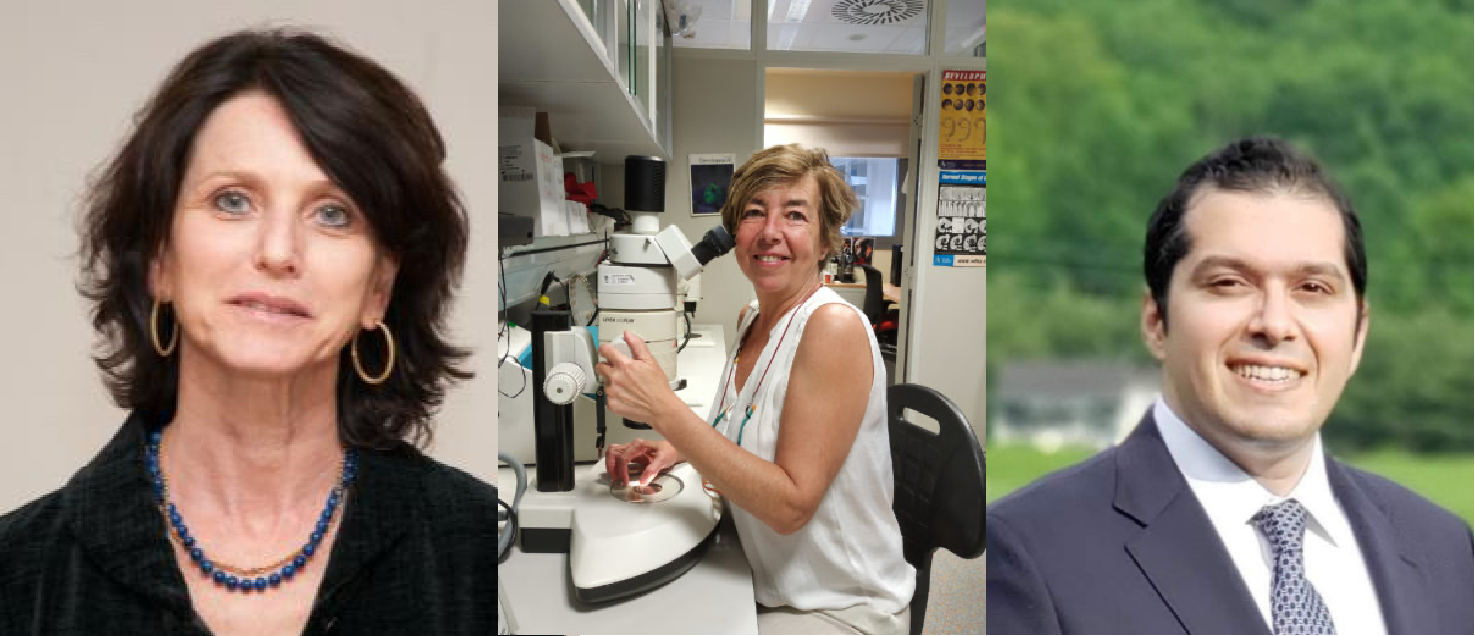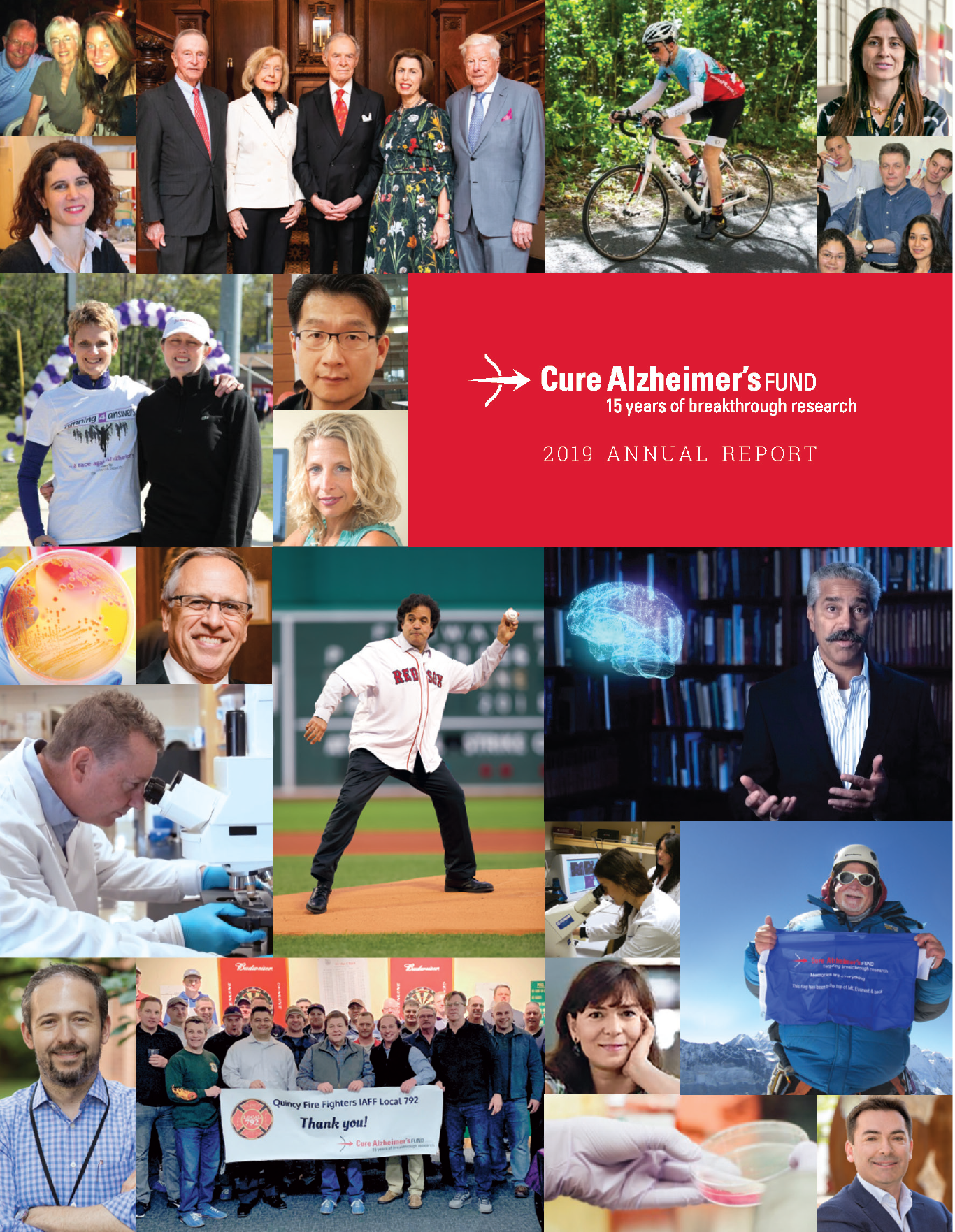
Although COVID-19 has presented many challenges, the critical work of medical research is now a daily conversation in the news and with the general public. The researchers investigating Alzheimer’s disease continue, throughout this pandemic, in their relentless pursuit of answers. Cure Alzheimer’s Fund is proud to provide grants for great research taking place throughout the world. Due to the generosity of our Board of Directors, who provide financial support for all of our operating costs, 100% of all donations go directly to Alzheimer’s research.
Damage to the Blood-Brain Barrier in APOE4 Carriers Predicts Cognitive Decline
A new study from Dr. Berislav Zlokovic suggests a link between APOE4, the gene variant associated with the greatest risk of developing Alzheimer’s disease, and a breakdown of the blood-brain barrier that is predictive of cognitive decline. The work was published in Nature and supported with a grant from Cure Alzheimer’s Fund.

Berislav Zlokovic, M.D., Ph.D.
FDA Approves First Tau Imaging Agent for P.E.T. Scans to Aid Clinical Diagnosis of Alzheimer’s Disease
Eight years after approval for the first amyloid-beta P.E.T. radiotracer, the Food and Drug Administration has approved the first tau P.E.T. imaging agent to diagnose Alzheimer’s disease.

Brain Imaging Finds Differences in Men and Women, Potentially Related to Alzheimer’s Disease
A study supported by CureAlz suggests that changes in the brain that may be related to Alzheimer’s are detectable by brain imaging in people without cognitive problems as early as midlife. And that among all late-onset A.D. risk factors evaluated, menopause had the strongest association, suggesting that hormonal risk factors may be likely predictors of Alzheimer’s-related brain changes. The study appeared in the journal Neurology.

Lisa Mosconi, Ph.D.
Variation in Tau Among Alzheimer’s Patients May Explain Why Some Worsen Faster Than Others
A recent study suggests that the variable rate of the severity of Alzheimer’s disease among patients may depend on how different tau is among individuals. The results appeared in the June issue of Nature Medicine.

Bradley Hyman, M.D., Ph.D. & Rudy Tanzi, Ph.D.
Cure Alzheimer’s Fund Welcomes Eight Researchers Studying Alzheimer’s Disease
Each year, we are fortunate to provide grants for work of researchers new to Cure Alzheimer’s Fund. Here are the new investigators in 2020 with a link to each of their biographies on CureAlz.org:

Paola Bovolenta, Ph.D. | Pilar Esteve, Ph.D. | Ali Ezzati, M.D.

Richard Lipton, M.D. | Miranda Orr, Ph.D.

Gentry Patrick, Ph.D. | Jean-Pierre Roussarie, Ph.D. | Nanda Shanmugam, Ph.D.
Amylyx Completes Enrollment in the Phase II Pegasus Trial of AMX0035 In Alzheimer’s Disease
A study supported by CureAlz suggests that changes in the brain that may be related to Alzheimer’s are detectable by brain imaging in people without cognitive problems as early as midlife. And that among all late-onset A.D. risk factors evaluated, menopause had the strongest association, suggesting that hormonal risk factors may be likely predictors of Alzheimer’s-related brain changes. The study appeared in the journal Neurology.

Congratulations to Dr. Ajit Varki for Receving the Kornfeld Lifetime Achievement Award
Dr. Ajit Varki of the Department of Cellular and Molecular Medicine at the University of California San Diego has received the distinguished Kornfeld Lifetime Achievement Award in Glycobiology. Dr. Varki’s work investigating CD33 and implications with Alzheimer’s disease is funded through a grant with Cure Alzheimer’s Fund.

Ajit Varki, M.B.B.S., University of California San Diego
2019 Cure Alzheimer’s Fund Annual Report Available Online
In their annual report letter, our Co-Chairmen and two of our founders Jeffrey L. Morby and Henry F. McCance, together with the Chair of our Research Leadership Group, Rudy Tanzi, Ph.D., describe the accomplishments of Cure Alzheimer’s Fund in 2019. The Annual Report also includes a complete list of all research grants issued in 2019.


